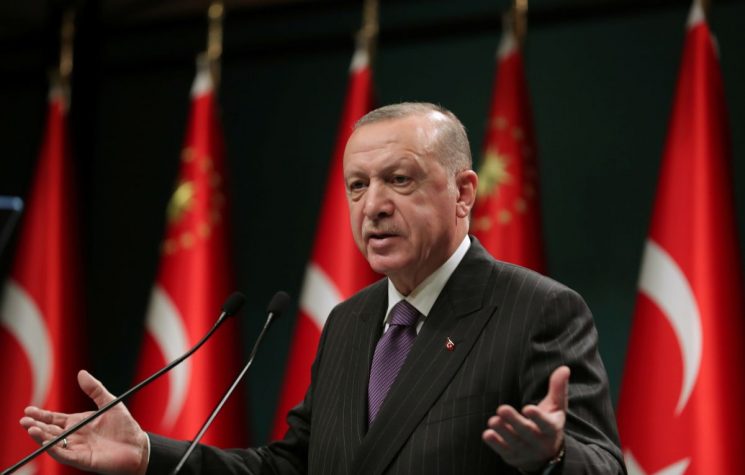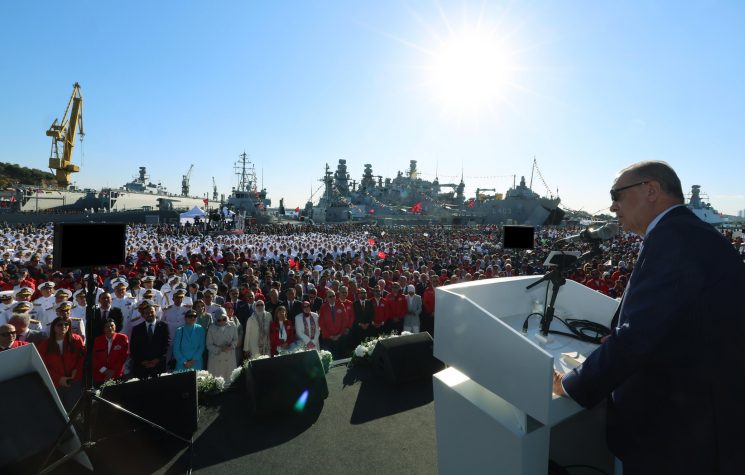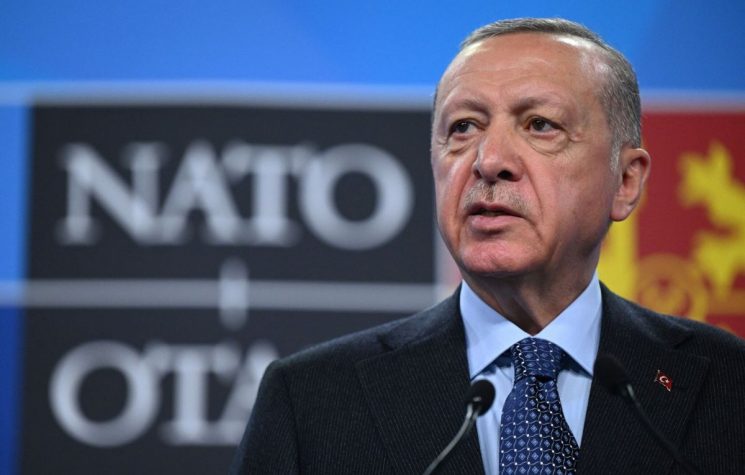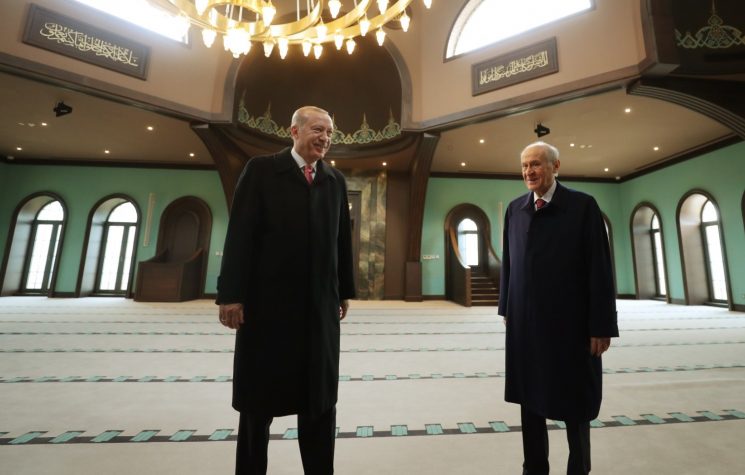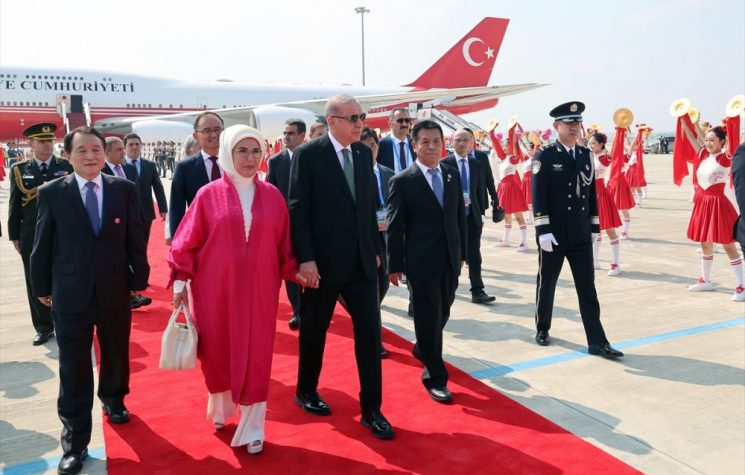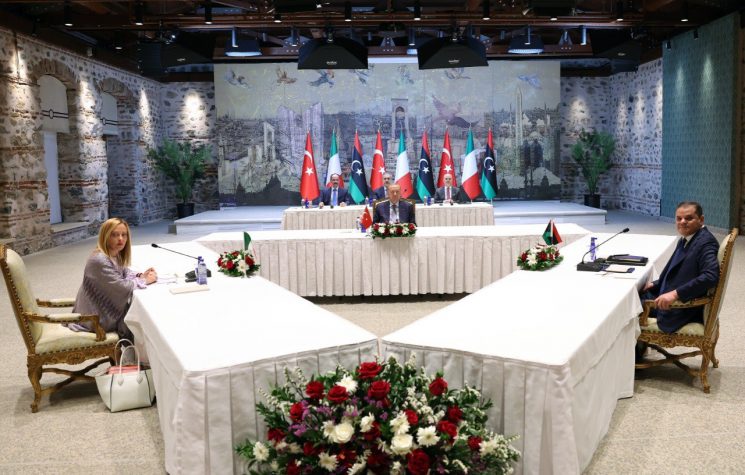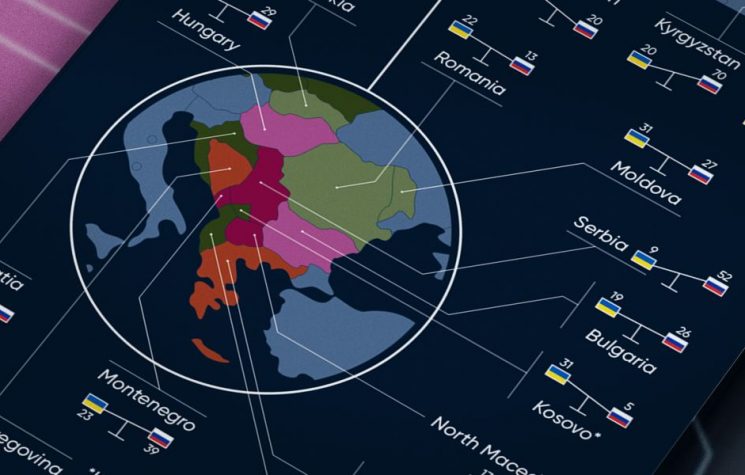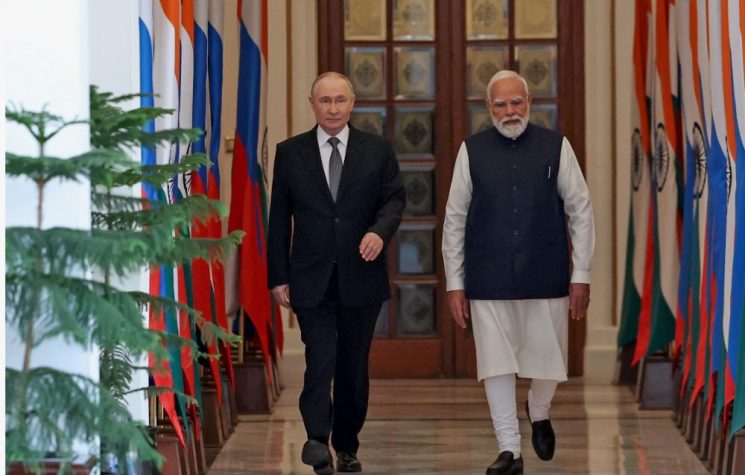Turkey must choose where to go. In all likelihood, it will not let anyone know – or understand – this, remaining consistent with its well-established style.
Contact us: info@strategic-culture.su
The Turkey of the ‘sultan’ Recep Tayyip Erdogan continues to offer surprises: the Defence Minister, Yaşar Güler, recently declared that Turkey wants to increase relations with the Shanghai Cooperation Organisation (SCO), while maintaining ties with NATO. What will happen? Let us try to analyse some scenarios.
Turkey’s geostrategic planning in 2024
Turkey is trying to exploit its favourable geostrategic position. Situated at the crossroads between Western Asia and Europe, it emphasizes its role at every opportunity, whether it is the transit of hydrocarbons from Russia or other oil and gas producing countries to Europe, or new transport corridors with motorways and railway lines. In recent years, the Trans-Caspian International Transport Route has been developed and, with the improvement of the security situation in Iraq, the former Dry Canal project, a logistic line from Istanbul via Mersin in the south of the country to Iraq, where the route passes through Mosul, Baghdad, Najaf, Basra and reaches the Persian Gulf coast, has also come back into focus. The project was discussed at the end of March 2024 and endorsed by Turkey and Iraq in a joint press statement citing the Silky Way as an integration target.
The key point of the project is the new port of Al-Faw (Great Port), which should be one of the largest ports in the Middle East and surpass Dubai’s Jebel Ali Port. There are several factors standing in the way of the project’s realization: neighbouring Iran, where the North-South corridor passes, may try to dissuade Iraq from creating an alternative route. Even if the port is built, it will be possible to extend the land part not to Turkey but to Iran, exchanging part of the transit flow; the United Arab Emirates is interested in launching an additional route, by virtue of the fact that a transport agreement between Turkey and the United Arab Emirates was signed in February 2022, where Turkish Foreign Minister Mevlüt Çavuşoğlu stated that these rail and highway lines will run through Iraq; political instability and insecurity in Iraq could also put the project at risk, because in addition to ISIS cells, a sensitive issue is the Kurdistan region (both in Turkey and Iraq) and, in particular, the activities of the Kurdistan Workers’ Party (PKK).
It must be emphasized that regional instability is a stimulating factor for the development of the Dry Canal project. Due to the blockade of the Red Sea by Yemen’s Houthis, Suez Canal traffic has decreased drastically and some of the goods destined for Turkey have been transported through Iran from the port of Bandar by road.
Meanwhile, Turkey has further advantages from the launch of this new corridor: first, it offers an additional opportunity for the transit of energy resources, since the existing pipeline from Iraq to Turkey has become the cause of internal conflicts. Oil exports from the Kurdistan Region via the Iraq-Turkey pipeline have been at a standstill since 23 March 2023, after a Paris-based arbitration tribunal ruled in favor of Baghdad against Ankara, stating that the latter had violated the 1973 agreement by allowing Erbil to start independent oil exports in 2014. After a stand-by phase due to attempts at new agreements to settle the economic losses (around USD 1 billion per month), the pipeline is now ready to restart and is being tested. However, a dispute may arise over preferences between Baghdad, Erbil and international companies.
Secondly, with external investments in Iraq, the Turkish government will be forced to meet its obligations and, one way or another, deal with militant groups. Turkey is fighting the PKK and will probably also be ready to deploy its security forces along the Dry Canal in Iraqi Kurdistan (part of this territory is already occupied by Turkish troops). In this case, Ankara will have a new instrument of influence in Iraq.
Finally, by using the additional route, Turkey will gain some economic and political advantages. At the same time, Turkish domestic politics can use the new infrastructure to engage the Turkish Kurds, thus reducing the risks of anti-government uprisings, since local PKK cells always use any excuse to escalate the conflict.
Thus, Turkey has a real interest in holding firm and ingratiating itself with its neighbours to the East, in view of an expansion already on the agenda, certainly more appetizing than any prospect towards the West, where Europe offers no market growth, rather recession.
NATO as a terrorist organization and Turkish strategic convenience
When the Turkish Defence Minister announced at a press conference the exploration of SCO membership, some journalists immediately asked about NATO, of which Turkey has been a member since 1952, playing a key role in the West-East balance. Indeed, the doubts are legitimate.
Now, let us reason step by step:
– the SCO was founded as an anti-terrorist organization;
– NATO has been promoting terrorist actions around the world as the armed wing of Anglo-American imperialism for 75 years;
– it follows that SCO and NATO are diametrically opposed and completely irreconcilable;
– Turkey, therefore, will have to make a choice.
If the reasoning is clear in formal logic, it is somewhat less so in strategic logic: it is not necessarily the case that what is morally or politically consistent is the most strategically expedient thing. This opens up several possible scenarios.
The first involves Turkey joining the SCO as an observer member, pending a possible formal commitment later. This would not be in formal conflict – in terms of statutes – for either NATO or the SCO. Full membership would have different conditions, but this is not the time. In this way, Turkey could play a sort of ‘double game’, further bridging and balancing the American and Eastern countries’ demands. Of course, there would be no shortage of difficulties and the interplay of interests could become very hot, forcing Turkey to make a radical choice within a short time. The irreconcilability of NATO and the SCO is only a given if NATO is recognized as an alliance promoting terrorist interests…but this is more a moral problem, not a political and strategic one. The Ankara government could use the ambivalent position for the sake of intelligence, economic agreements, and defense sector development. It is no coincidence that it was Minister Güler, not the President, who mentioned this option, which manifests a specific communication strategy to reach a specific international target.
A second scenario sees Turkey renouncing the SCO and still remaining in NATO. This could put it in serious difficulty with the multipolar developments that are taking place. It must be remembered that Turkey looks with great interest at the BRICS+, which are, however, acting to dismantle Anglo-American hegemony, in the opposite direction to NATO on the geo-economic level. In the long run, Turkey would risk a commercial as well as a strategic disadvantage, especially if BRICS+ and SCO actually sign a formal cooperation agreement. In this perspective, much will depend on the Turkish government’s self-determination from the yoke of the Atlantic. Note that, at the moment, no NATO member country is an official part of the BRICS+.
The third scenario envisages Turkey joining the SCO by renouncing its position in NATO. Although this is a very appealing prospect, one has to consider the difficulty in the short term. Turkey, in fact, has a long-standing connection with NATO that has squeezed it in no small part to the American game: over the decades, the Alliance has very actively involved Turkey in military development – not least with the F-35 program, from which it was excluded at the last minute at the beginning of 2024 -, contributing both research and expenditure. Equally true is that Turkey has often employed weapon systems from Russia, with which it has very good business, which has rattled the government in Washington several times over the past six years. The U.S. also supports the Kurdish independence movement, something that has not gone down well in Ankara. In the face of the diplomatic incidents of the past years, Russia has managed to make good use of the opportunities, showing Turkey significant support, to the detriment of American hesitancy.
The relationship between NATO and Turkey has historically been characterized by differences and crises, and by Turkey’s ‘transactional’ approach, which we have witnessed with the opposition against Swedish and Finnish membership in recent months, which also aims at lifting the arms embargo against the country. In the past, Turkey has blocked NATO-EU cooperation in retaliation for the entry of the Greek Republic of Cyprus into the EU, rendering the 2002 Berlin Plus agreement that would have deepened cooperation with Brussels practically null and void.
The relationship is also marked by so-called ‘alliance dependency’, the realization on both sides that they are too dependent on the alliance to sever ties. The alternative is simply considered worse. For NATO (and the EU), antagonizing Turkey in the current situation of confrontation with Russia would not be rational. The Turks are skilful traders, they do not need grand turns of phrase: the political choice, also in the strategic and economic sphere, remains pragmatism, which remains the best solution given that the balance between containing Russia in the Black Sea and maintaining good relations with Moscow, also in the light of the Kurdish question, must be preserved.
Turkey, therefore, must choose where to go. In all likelihood, it will not let anyone know – or understand – this, remaining consistent with its well-established style. Whether it chooses a median path, with a dubiously balanced position between NATO and the SCO, or only one of the two, it will not step back from protecting its own national interest and will not allow the influence of external entities to overtake it. This last point remains central and must be well understood: Turkey does not allow strong political interference in its autonomy. NATO has already touched the limit several times in recent years and what has resulted has not been so positive. Whether in the SCO or the BRICS+, in any case Turkey will not accept violations of its sovereignty.
















